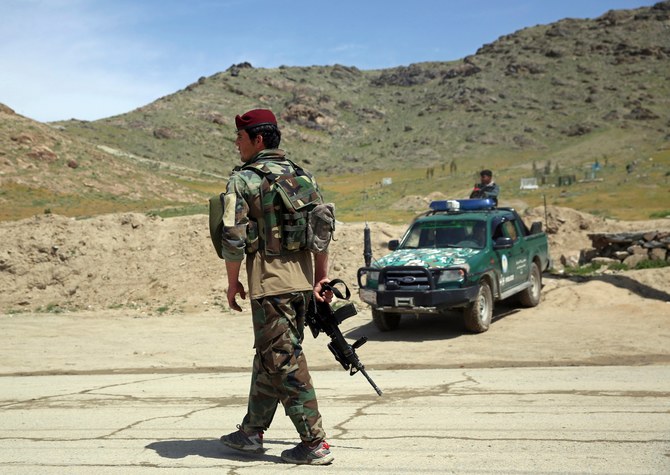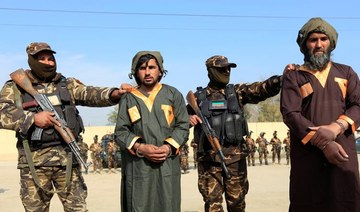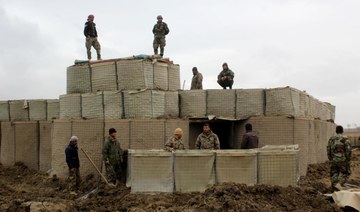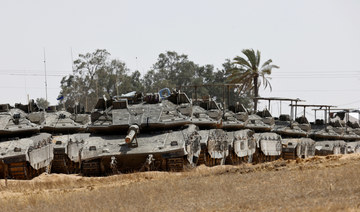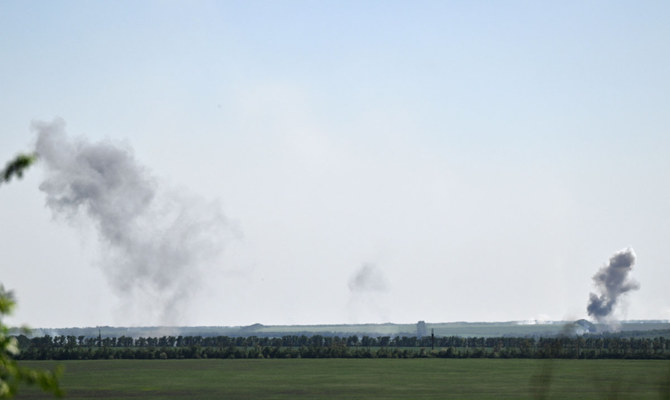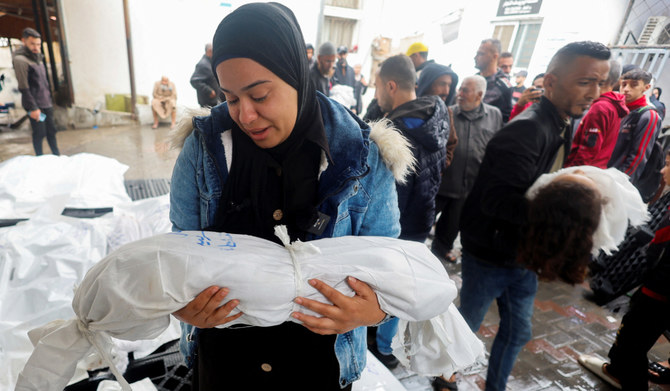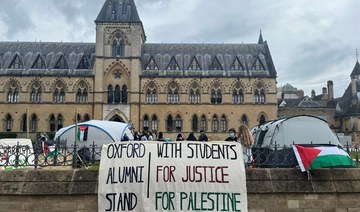KABUL: More than 70 government security forces have been killed across Afghanistan in Taliban attacks during the past two days alone, officials said Tuesday, even as negotiators from both sides engage in direct peace talks to end decades of war.
“The Taliban have increased their raids since the start of the talks and, as the defense minister said recently, the reason for it is to seek concessions at the negotiation table which is impossible to gain through violence and killing,” Fawad Aman, Defense Ministry spokesman, told Arab News.
He said that government troops, who were on “active defense status” because of the ongoing talks in Qatar, were forced to respond and managed to foil Taliban attacks and inflict heavy losses.
The Taliban had the intention of capturing towns and districts from the government, like it had done in the past, while the talks were going on in Qatar, but they had not succeeded and faced a tough response from security forces, Aman added.
Tariq Aryan, a spokesman for the Interior Ministry, said that while the Taliban had carried out attacks in 24 out of 34 provinces since the start of the talks last week, seven provinces had come under renewed assault in the past 48 hours.
Southern Uruzgan has been the site of the worst strikes, which began on Sunday night and continued until early Tuesday morning, he said.
“At least 24 government forces were killed after the Taliban stormed their posts on Sunday night,” Uruzgan’s deputy governor, Sayed Mohammad Sadat, was reported as saying by local media.
Overnight, at least 14 more government troops were killed in a separate Taliban attack in Gizab district, the governor’s spokesman Zergai Ebadi said on Tuesday.
In Kandahar which, like Uruzgan serves as the Taliban’s birthplace, 11 soldiers lost their lives in two separate attacks on Sunday night, while 20 troops were killed in two different raids in Maidan Wardak province, which lies on a strategic highway to the west of Kabul.
Several dozen soldiers were killed in other parts of the country, such as Takhar and Baghlan in the north and Tagab in Kabul’s northeast, but officials at the defense and interior ministries did not provide an exact figure when contacted by Arab News.
The Taliban blamed the government for the escalation of attacks, accusing it of building new posts in regions close to Taliban-controlled areas, and dispatching additional troops in nine provinces.
“We have been on defense mode, and the reason why they have suffered is because they were trying to establish new positions in ours, making them vulnerable to our attacks,” Zabihullah Mujahid, the group’s spokesman told Arab News by phone, adding that the government was carrying out air raids “in retaliation” for its casualties that “only killed civilians.”
“Talks are going on in Qatar but, in the battlefield, we are not allowing them to make any progress,” he said.
The significance of the timing is not lost on officials.
Zalmay Khalilzad, US special envoy for Afghanistan, tweeted on Monday: “Over the last few days, there has been a clear rise in violence in Afghanistan. This escalation is regrettable as Afghans, including many civilians, are losing their lives.” He called on all sides to reduce violence.
Sediq Seddiqi, President Ashraf Ghani’s chief spokesman, said that while talks were underway in Qatar the “continuation of violence will further disappoint the people.”
“We have lost a large number of our troops (in recent days), and people ask why there is violence when we talk about peace,” he told Arab News. “Both people and the government believe that the Taliban do not have any justification for the continuation of violence.”
Seddiqi said that the continuation of Taliban attacks may damage the consensus created at home and in the region on the peace process, with the US eyeing a complete withdrawal of its troops from the country by next spring.
One presidential palace source, speaking on condition of anonymity, said that if the Taliban insisted on the continuation of violence then there was a probability that “the peace process will collapse.”
Experts, however, viewed the recent attacks as part of “political pressure tactics.”
“The warring sides in Afghanistan, like in other past peace processes in other parts of the world, want to build pressure on each other on the battlefield to have the upper hand in the political bargaining,” Attiqullah Amarkhail, a retired general, told Arab News.
But he said that, in Afghanistan’s case, the government suffered the most.
“It’s because it deals with maximum pressure and faces rising public anger because of the casualties and from other sides, there are people in government who want to prolong the war because it is through that they have thrived, earned wealth and power.”
Amarkhail, without naming any leader, said that some in top government positions were also “fanning ethnic and sectarian tension” while the serious process of talks in Qatar had yet to begin, fearing it could “lead to mistrust and possibly derail the peace process.”
Amanullah Hotaki, a former provincial council member in Uruzgan, said: “If the talks fail, then they (the Taliban) have to be in the upper position for implementing their Plan B which is to get power by force.”



